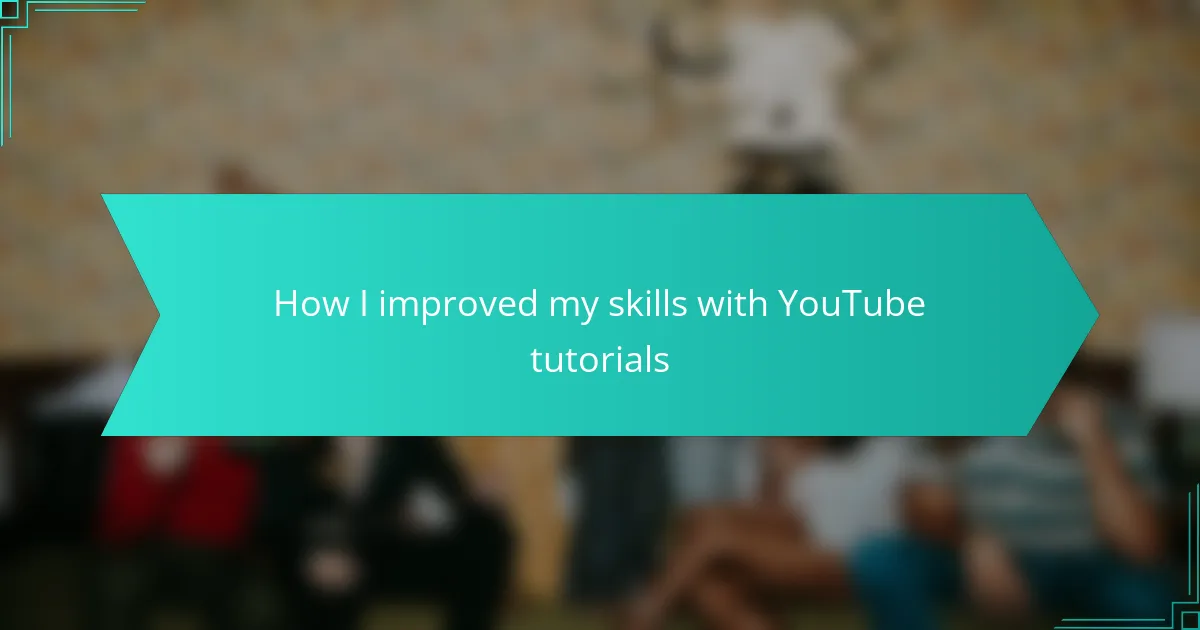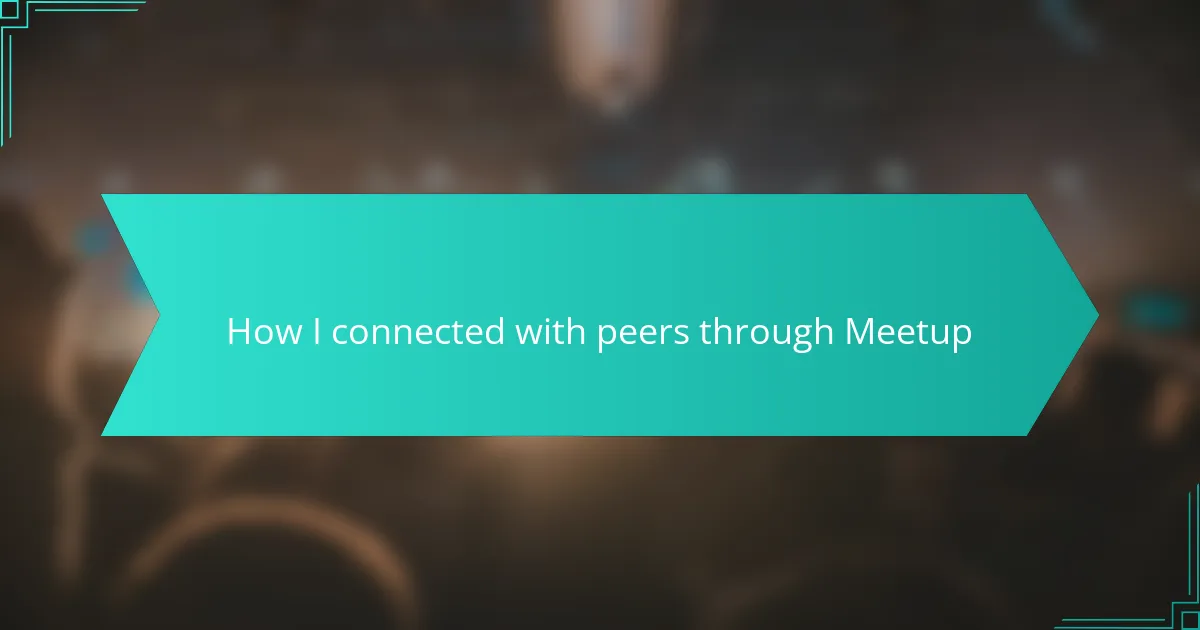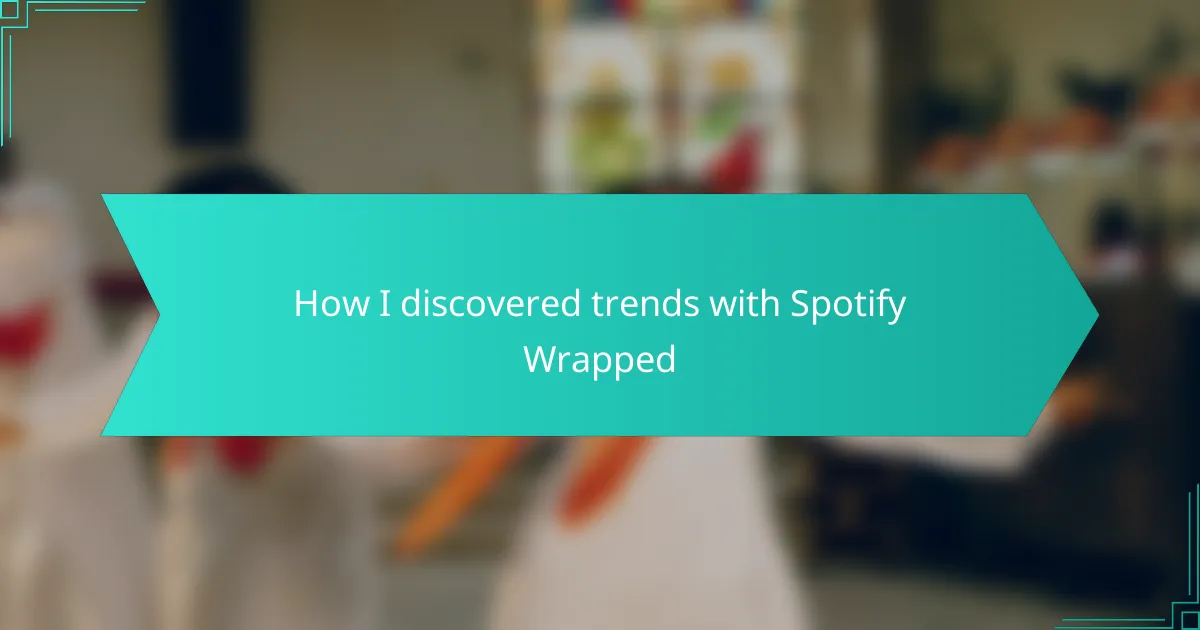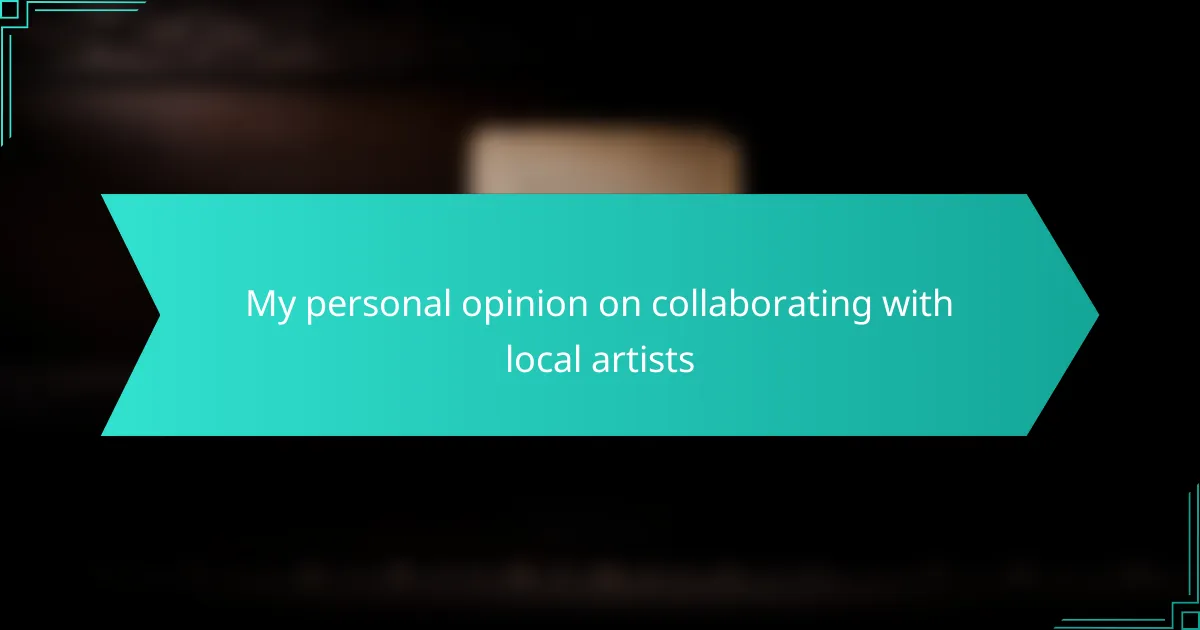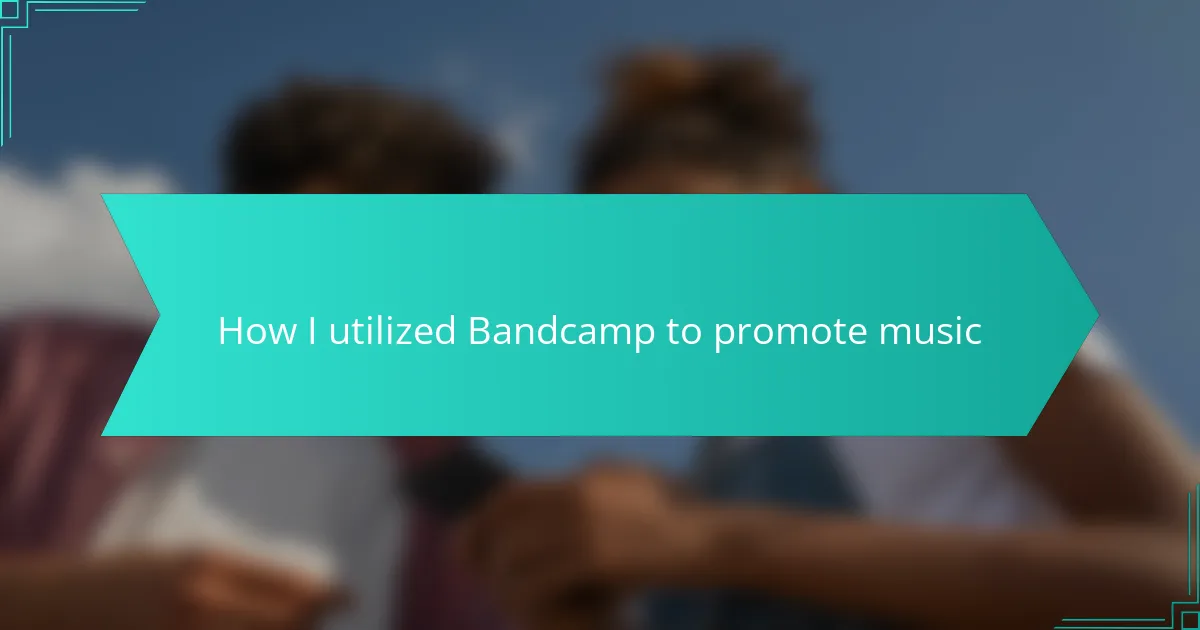Key takeaways
- Musician career resources, such as YouTube tutorials and online courses, are essential for developing skills and networking within the music industry.
- Creating a structured learning plan enhances focus and motivation, allowing musicians to make steady progress instead of feeling overwhelmed.
- Tracking progress through methods like recordings and checklists provides motivation and a sense of accomplishment in skill improvement.
- Engagement with online communities encourages support and inspiration, transforming the learning experience into a collaborative journey.
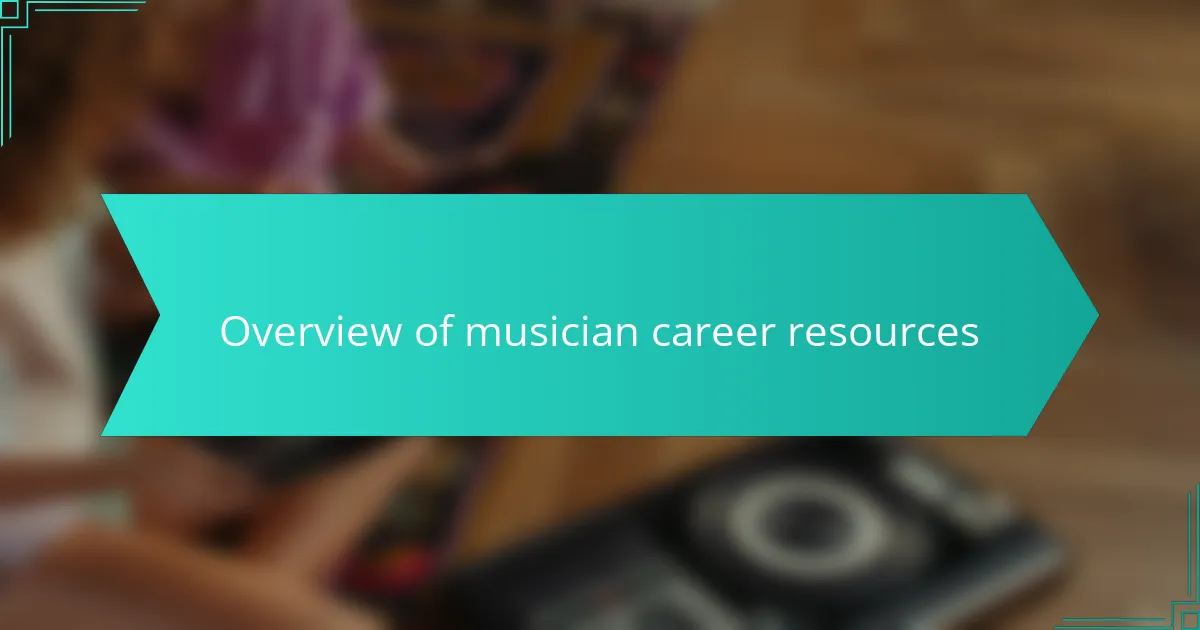
Overview of musician career resources
Musician career resources are crucial for those looking to navigate the complex landscape of the music industry. From tutorials that enhance our technical skills to networking platforms that connect us with industry professionals, these resources play a vital role in our growth. Personally, I’ve found that exploring different online tools and platforms often leads to unexpected insights and valuable connections.
When I started my journey, I turned to YouTube tutorials, discovering a treasure trove of information that helped me hone my craft. It was inspiring to see not just the techniques but also the stories of other musicians sharing their experiences. This sense of community kept me motivated and reminded me that I wasn’t alone in my pursuit.
Here’s a comparison of some popular musician career resources that I found helpful:
| Resource Type | Description |
|---|---|
| YouTube Tutorials | Video-based learning with diverse content from music theory to instrument techniques. |
| Online Courses | Structured lessons that often come with feedback and certification, covering comprehensive topics. |
| Social Media Groups | Real-time networking and discussions where musicians share tips and support each other. |
| Music Forums | Community-driven platforms for asking questions and sharing experiences within the music industry. |
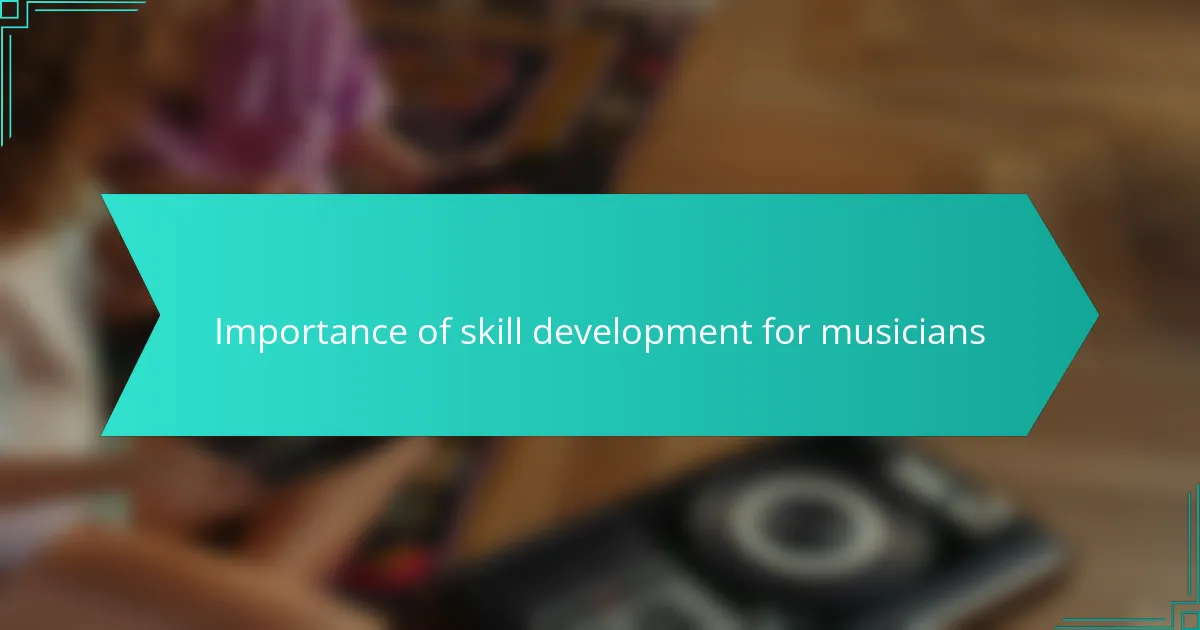
Importance of skill development for musicians
Skill development is crucial for musicians, as it directly influences creativity and overall performance. I remember when I first started playing guitar; my lack of technique was frustrating. Through YouTube tutorials, I discovered new methods that not only improved my skills but also reignited my passion for music.
Moreover, consistently honing skills helps musicians to adapt in an ever-changing industry. For example, I’m now able to experiment with various genres and techniques that I never thought possible before. Each lesson I absorbed opened new doors, letting my creativity flow in ways I hadn’t imagined.
Here’s a comparison table highlighting the differences in skill development practices:
| Method | Time Investment |
|---|---|
| YouTube Tutorials | Flexible, self-paced |
| Formal Classes | Scheduled, structured |
| Self-Teaching | Variable, depends on motivation |
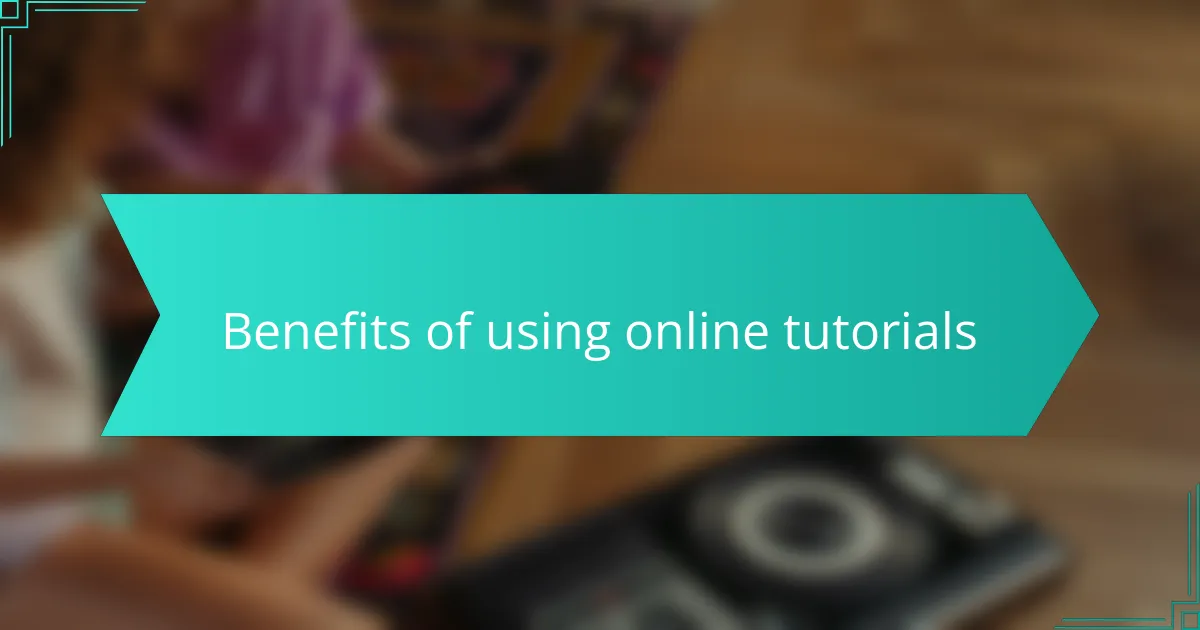
Benefits of using online tutorials
Online tutorials have transformed how we learn, especially in music. I remember the excitement I felt when I stumbled upon a guitar tutorial that clicked with me. The instructor’s step-by-step breakdown made it so easy to follow, and I felt empowered as I strummed along. The flexibility of learning at my own pace has made my practice sessions much more enjoyable and less stressful.
Another significant benefit is the vast array of resources available. There’s something for everyone, whether you’re a beginner or looking to refine advanced techniques. Plus, the sense of community among fellow learners can be incredibly motivating. I often find myself inspired by comments from other students sharing their progress, which keeps me driven to improve.
Using online tutorials has not only honed my skills but also reignited my passion for music. They offer immediate feedback and a variety of teaching styles, ensuring that I find what resonates with me. This personalization is something I truly value in my musical journey.
| Benefit | Details |
|---|---|
| Flexibility | Learn at your own pace, on your own schedule. |
| Diverse Resources | Access to a wide range of tutorials for all skill levels. |
| Community Engagement | Collaborate and engage with fellow learners for motivation. |
| Immediate Feedback | Get instant tips and corrections from experienced instructors. |
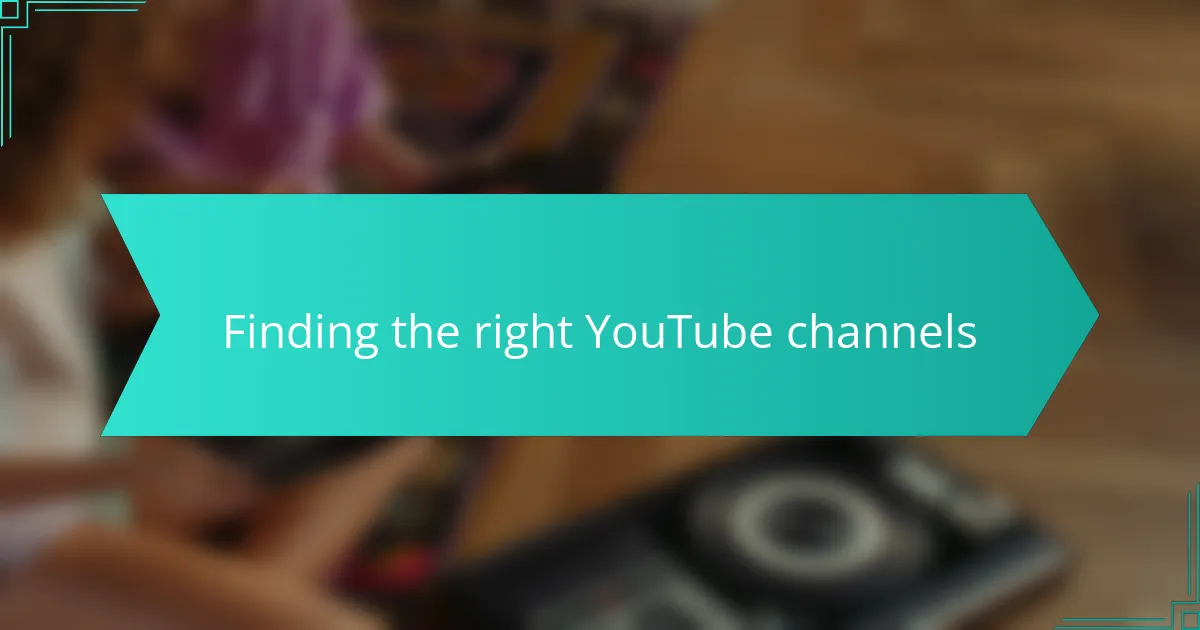
Finding the right YouTube channels
Finding the right YouTube channels can feel like searching for a needle in a haystack, but there are gems out there. When I first started sifting through content, I found it essential to look for channels that resonate with my musical style and learning preferences. Did I want interactive lessons, or was I drawn to more traditional instruction? That decision significantly narrowed down my choices.
I often recommend exploring the comments section of a channel before diving into its content. This simple step can unveil a wealth of information about the effectiveness of the tutorials. When I did this, I was surprised by the amount of community feedback; it made me feel connected to fellow learners and helped me gauge which channels were truly beneficial. This insight often made the difference between a mediocre learning experience and a rewarding one.
Another tip is to pay attention to the instructor’s teaching style. I discovered that some educators’ methods clicked with me better than others. For instance, I learned best from those who broke down complex concepts into digestible chunks. This preference made my learning experience not just effective but enjoyable, reinforcing my passion for music with each video I watched.
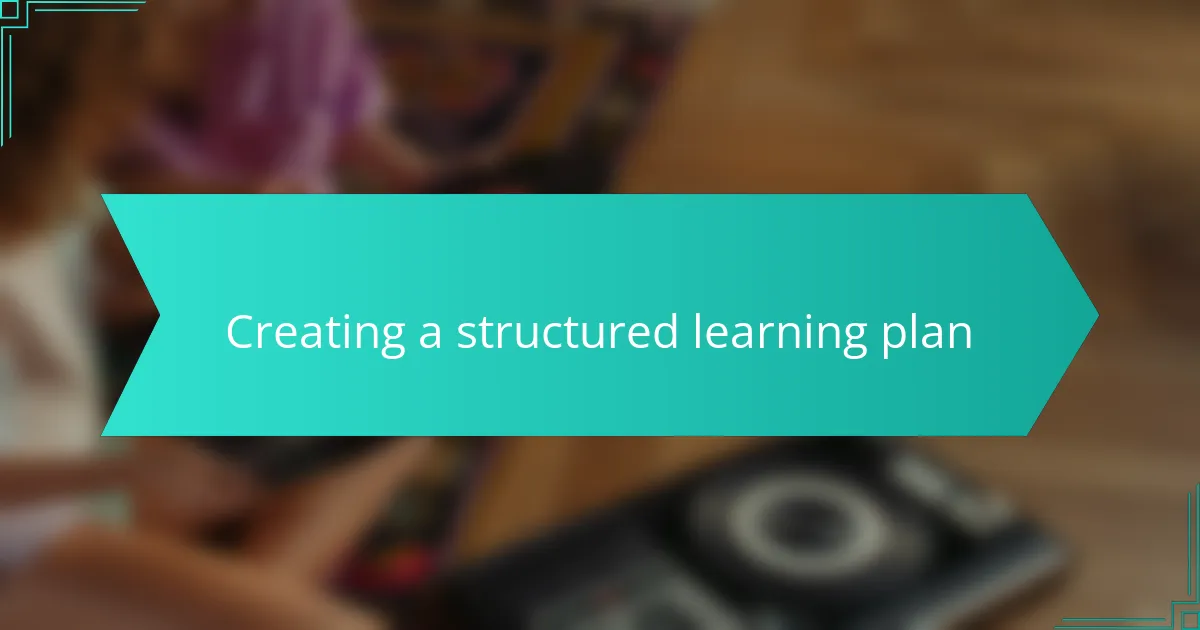
Creating a structured learning plan
Creating a structured learning plan was a game-changer for me when I started using YouTube tutorials to enhance my musical skills. I realized that without a clear roadmap, I often felt overwhelmed by the abundance of content available, leading to a lack of focus. By setting specific goals and scheduling regular practice sessions, I transformed my learning experience, turning what used to be random browsing into targeted study sessions that really fueled my passion for music.
I always found it helpful to break my plan down into manageable chunks. For instance, I might dedicate specific days to mastering scales, learning songs, or even improving my music theory. This not only kept me organized but also made progress feel tangible and rewarding. There’s something exhilarating about ticking off each completed task, and that sense of achievement kept me motivated.
Here’s a comparison table reflecting the difference between a random approach to learning and a structured plan:
| Learning Approach | Impact |
|---|---|
| Random Browsing | Overwhelmed, unfocused, and frustrated |
| Structured Plan | Focused, motivated, and steady progress |
![]()
Tracking progress and measuring improvement
Tracking my progress while using YouTube tutorials has been a game-changer for my musical journey. I found that setting clear goals helped me stay motivated and made it easier to recognize my improvements. For instance, I’d often record myself before starting a new tutorial and then again after completing it, allowing me to hear the tangible differences in my playing.
Measuring improvement can also be done through checklists. I developed a simple list of skills I wanted to master with each tutorial, and after I’d practiced, I’d cross off each item I felt more confident about. This not only kept me accountable but also filled me with a sense of accomplishment as I saw that list getting shorter!
Here’s a simple comparison table to help illustrate different methods of tracking progress:
| Method | Description |
|---|---|
| Recording | Listen to before and after to identify improvements. |
| Checklists | Create a list of skills and cross them off as you improve. |
| Self-Reflection | Regularly note your feelings about your progress and skills. |
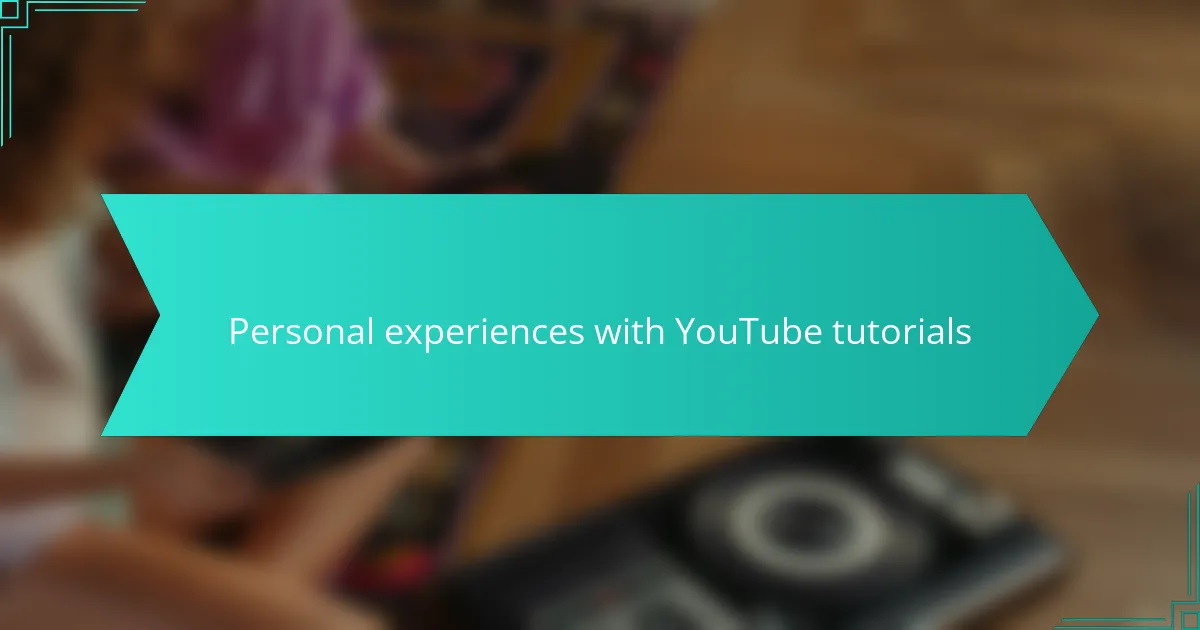
Personal experiences with YouTube tutorials
When I first dove into the world of YouTube tutorials, I was both excited and intimidated. I remember scrolling through countless videos, searching for the right guitar techniques to enhance my playing. It felt like stumbling upon a treasure chest of knowledge—the thrill of uncovering tips and tricks from seasoned musicians was exhilarating. Each tutorial I watched sparked a sense of possibility within me; I could actually improve my skills on my own.
In my journey, I’ve come across some gems that really resonated with me. Here are a few lessons I learned from my YouTube experiences:
- Practice with Purpose: A tutorial taught me to set specific goals for my practice sessions, which made the learning process more focused and enjoyable.
- Visual Learning: Watching someone demonstrate techniques helped me grasp concepts I struggled with in written format.
- Community Engagement: Many tutorials encouraged viewers to share their progress and ask questions, creating a supportive network that boosted my confidence.
- Mistakes Are Okay: Seeing skilled musicians make mistakes reminded me that learning is a journey filled with ups and downs, and it’s perfectly normal to stumble.
- Creative Inspiration: Sometimes, I’d stumble upon a tutorial that sparked a new song idea or approach, enriching my creative process.
These experiences not only sharpened my skills but also deepened my love for music, turning what once felt like a daunting task into a joyful adventure.
